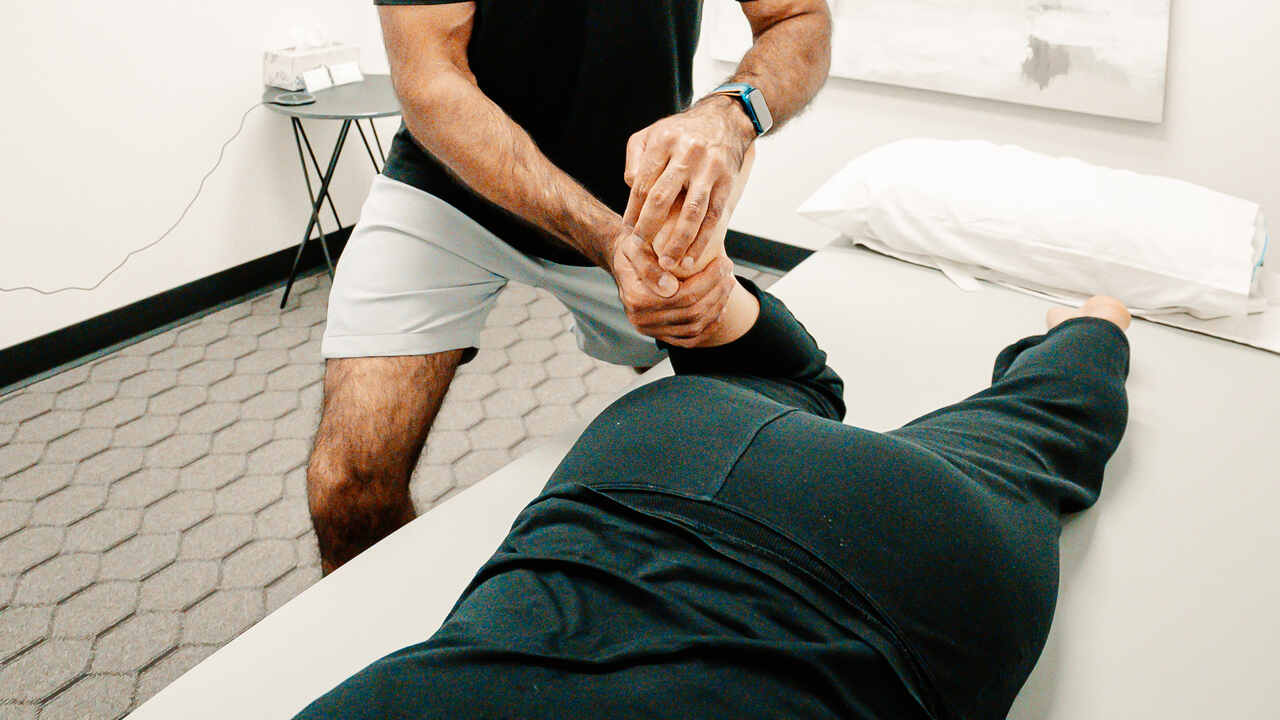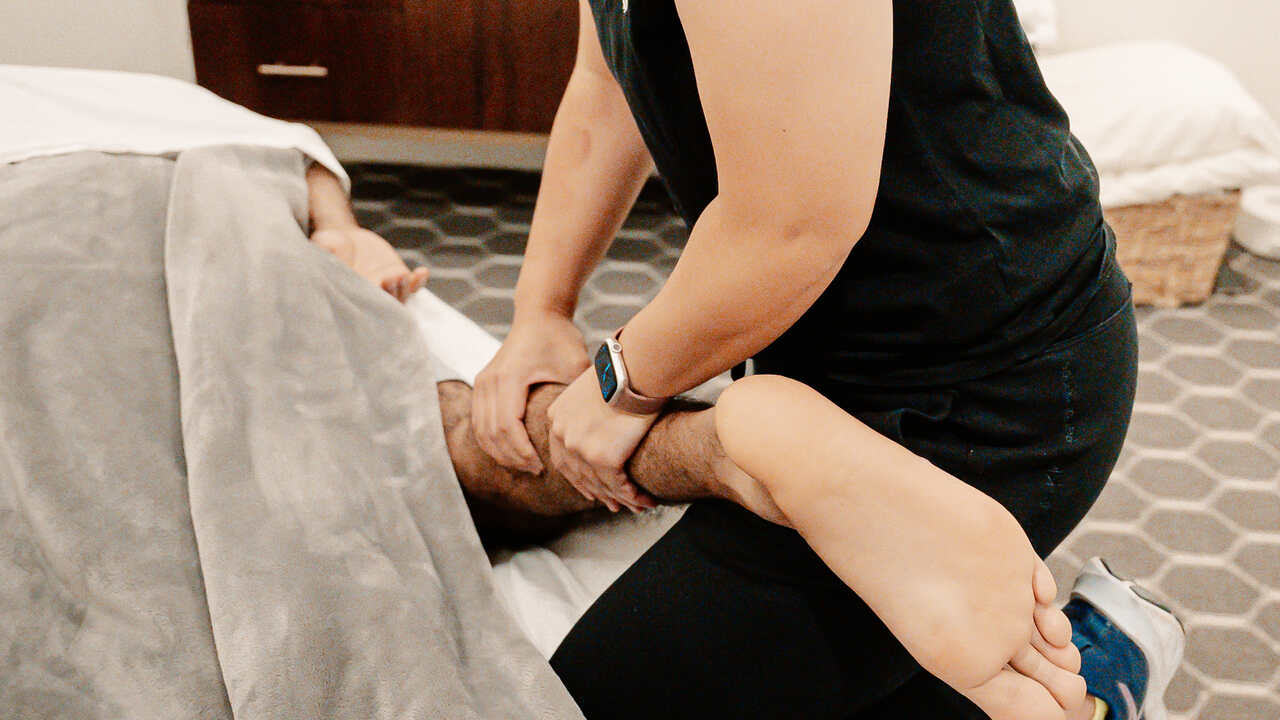
As we age, maintaining mobility and function becomes increasingly important. Physiotherapy can play a crucial role in enhancing the quality of life for seniors. In this blog post, we will address common questions regarding physiotherapy for the elderly and shed light on the benefits it offers.
Benefits of Physiotherapy for Seniors
Physiotherapy is highly beneficial for seniors as it focuses on improving mobility, function, and overall well-being. Whether recovering from an injury or managing chronic conditions, physiotherapy services are tailored to meet the unique needs of older patients. Key benefits include:
- Improved Mobility: Physiotherapy helps increase range of motion in joints and strengthens muscles, making it easier for seniors to move freely and with less pain.
- Pain Management: Techniques such as manual therapy, therapeutic exercises, and modalities like heat and cold therapy help alleviate pain and discomfort.
- Enhanced Function: Functional training, balance and coordination exercises, and endurance building help seniors perform daily activities more easily and safely.
- Recovery from Surgery or Injury: Post-surgical rehabilitation and injury recovery programs promote healing, improve flexibility, and prevent complications.
- Management of Chronic Conditions: Tailored exercises and therapies help manage conditions like arthritis and cardiovascular issues, improving overall health.
- Fall Prevention: Balance training and strength exercises reduce the risk of falls, enhancing confidence and safety in daily movements.
 Physiotherapy Treatments Explained
Physiotherapy Treatments Explained
A physiotherapist for seniors provides rehabilitation services to promote recovery, enhance mobility, and address age-related issues. Through personalized treatment plans, physiotherapists help elderly patients regain independence and improve their quality of life. Physiotherapists may employ techniques such as:
- Manual Therapy: Hands-on techniques such as massage and joint mobilization reduce pain, improve circulation, and increase joint flexibility. Targeted massage techniques alleviate muscle tension, improve blood flow, and promote relaxation.
- Exercise Prescription: Customized exercises strengthen muscles, improve balance, and enhance cardiovascular health, tailored to each individual’s specific needs.
- Dry Needling: This technique involves inserting thin needles into trigger points to relieve muscle tension and reduce pain.
- Shock Wave Therapy: High-energy sound waves stimulate repair in damaged tissues, reducing pain and improving function.
- Concussion Rehabilitation: Specialized exercises and treatments help seniors recover from concussions, addressing symptoms like dizziness, headaches, and balance issues.
- Orthopaedic Rehabilitation: Focuses on the assessment and treatment of musculoskeletal issues, including bones, muscles, tendons, and joints, often involving soft tissue treatments, joint mobilization, and exercise prescription.
Geriatric Conditions Physiotherapists Can Help You With
Physiotherapists specialize in treating a wide range of geriatric conditions, including arthritis, osteoporosis, joint replacements, and balance disorders. Their expertise in mobility and function therapy can significantly improve the overall health of elderly patients. Physiotherapy can be an invaluable tool for the treatment and management of a variety of other conditions, including:
- Chronic Pain: Chronic pain conditions, like fibromyalgia, are managed through manual therapy, exercises, and modalities such as shockwave therapy, aiming to reduce pain and improve function.
- Post-Stroke Rehabilitation: Physiotherapists can help you regain motor skills, strength, and balance through targeted exercises and activities, promoting recovery and preventing complications.
- Cardiovascular Rehabilitation: For heart disease or post-cardiac surgery, physiotherapy includes exercises to enhance cardiovascular health, increase endurance, and strengthen the heart, along with lifestyle education.
- Urinary Incontinence: Physiotherapists address urinary incontinence with pelvic floor exercises and bladder training techniques to strengthen pelvic muscles and improve bladder control.
It is important to note that physiotherapy yields the best results when used as part of a well-rounded treatment approach. While a doctor’s referral is not always necessary to see a physiotherapist, it can be beneficial to consult with a healthcare provider before starting physiotherapy treatment, especially for seniors with complex medical conditions.
Is Physiotherapy Covered for Seniors in BC?
Physiotherapy services may be covered for seniors in British Columbia, depending on their specific healthcare plan. It is advisable to check with the relevant authorities or healthcare providers to understand the coverage options available.
For lower-income patients in BC, Medical Services Plan (MSP) coverage may include physiotherapy services. Registering for MSP coverage can provide access to essential physiotherapy treatments to support rehabilitation and injury recovery.
Improved Quality of Life Starts Here
Physiotherapy plays a vital role in enhancing the well-being of seniors by improving mobility, function, and overall quality of life. Whether through in-home appointments or clinic visits, physiotherapists offer specialized treatment to address the unique needs of elderly patients in Canada. Prioritizing physiotherapy for seniors can lead to better management of chronic conditions and improved mobility, ultimately promoting healthy aging.
At Affinity Wellness in Kelowna, our dedicated team is here to support you on your journey to better health and improved mobility. Contact us today to schedule an appointment and discover how our personalized physiotherapy services can help you achieve a healthier, more active lifestyle.
Frequently Asked Questions
How Often Should Seniors Attend Physiotherapy Sessions?
The frequency of physiotherapy sessions for seniors varies depending on individual needs, the severity of their condition, and their overall health goals. A physiotherapist will assess each patient’s specific situation and develop a personalized treatment plan, which may range from once a week to several times a week.
Can Physiotherapy Help Prevent Falls in the Elderly?
Yes, physiotherapy can significantly reduce the risk of falls in the elderly by improving balance, strength, and coordination. Tailored exercises and balance training sessions are key components of fall prevention strategies employed by physiotherapists.
What Types of Exercises Are Included in Physiotherapy for Seniors?
Physiotherapy for seniors typically includes a range of exercises designed to improve flexibility, strength, balance, and coordination. These may include stretching exercises, strength training with resistance bands or weights, balance exercises, walking drills, and specific rehabilitation exercises tailored to the individual’s health condition and mobility goals.


 Physiotherapy Treatments Explained
Physiotherapy Treatments Explained 